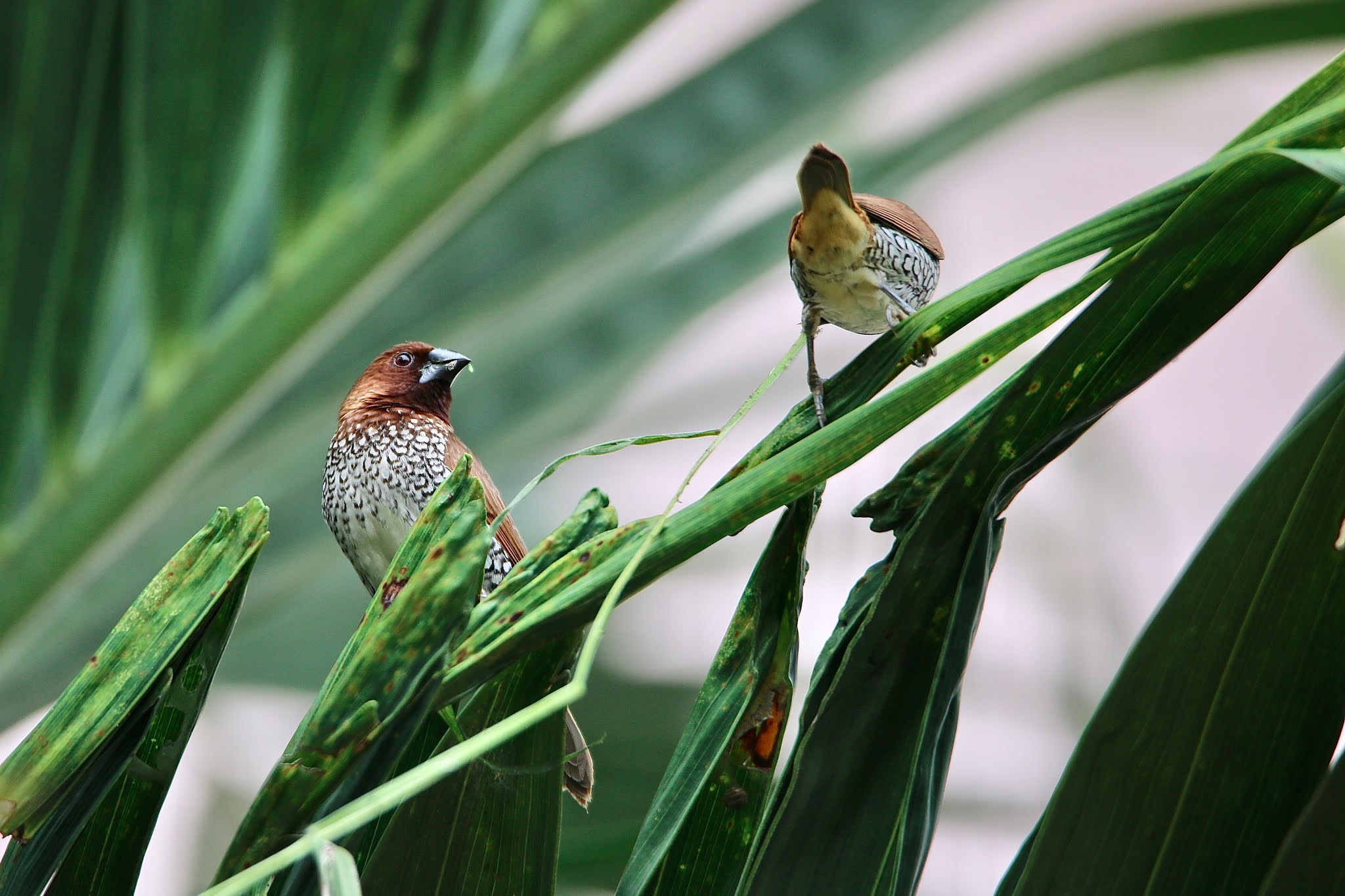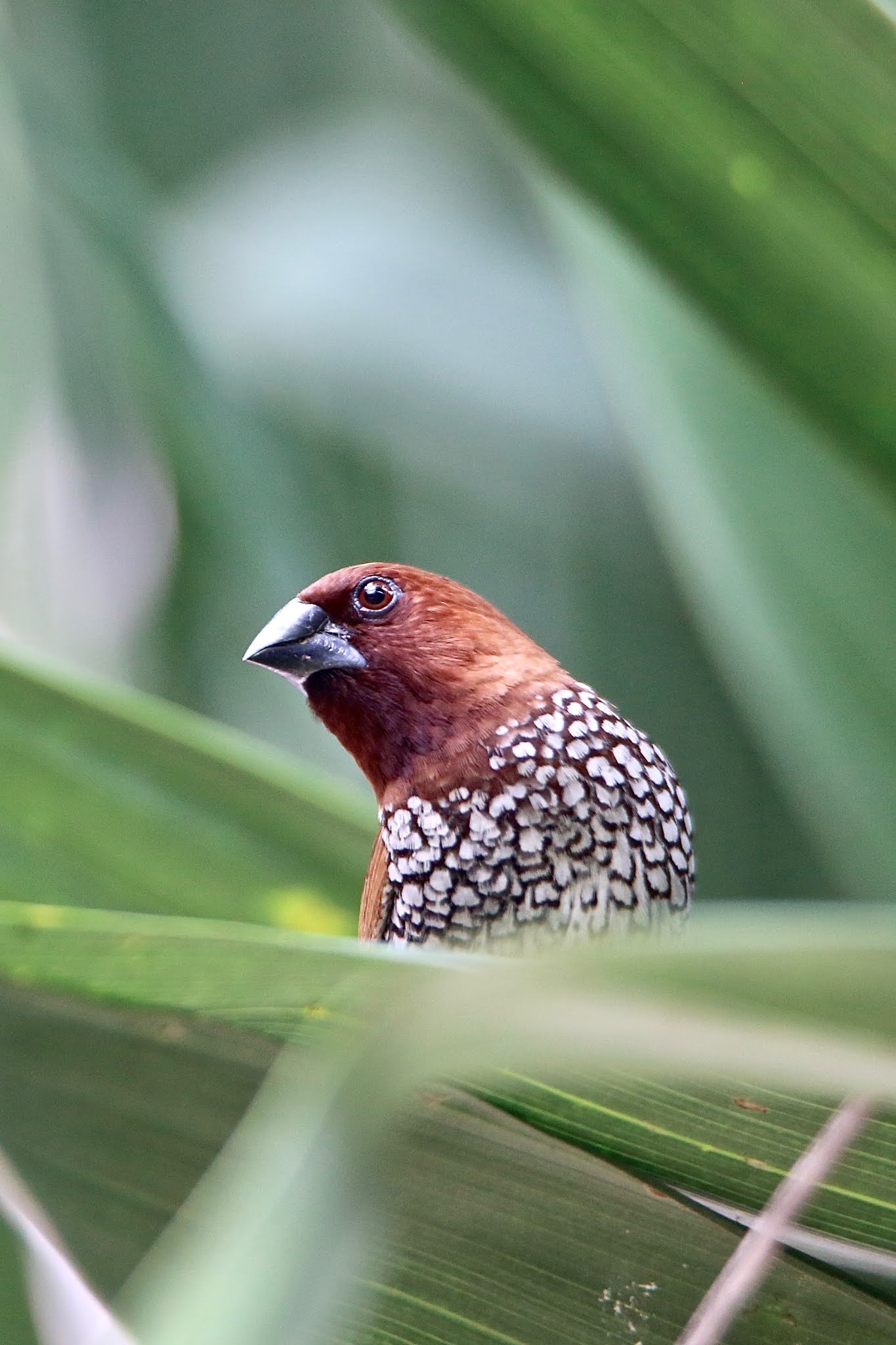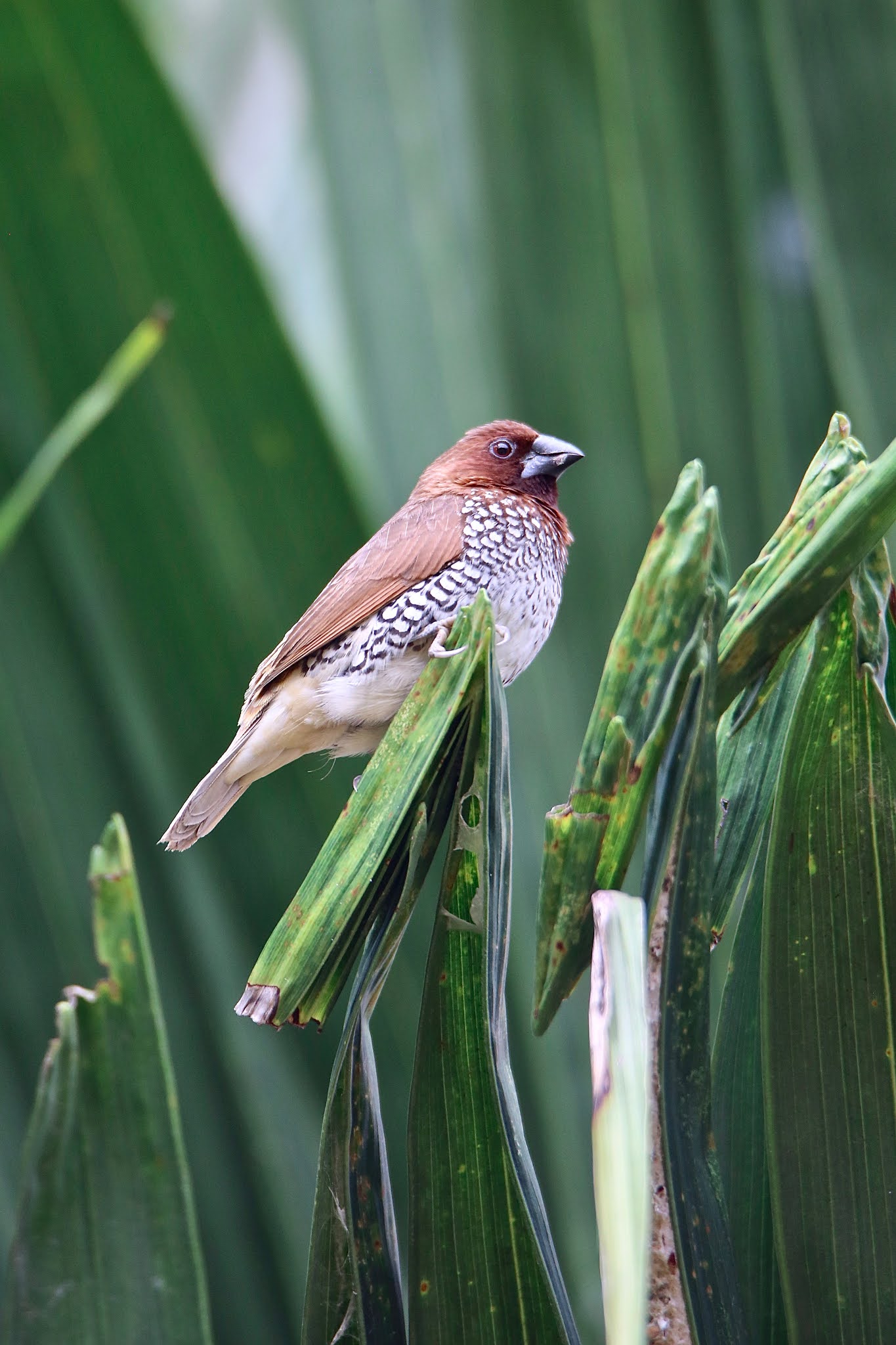Seeing a scaly-breasted munia, with mechanical precision, gathering pieces of grass and going up the ornamental arecanut tree, raised my curiosity. I followed the munia, and to my surprise, it was building its nest there. It was in-between the trunk of the tree and its large leaf. Considering the size of the bird, it was an ambitious project –a big nest, with a round opening to its side.
 |
| Scaly-breasted munia has a rather heavy and strong bill |
 |
| Scaly-breasted Munia makes a large grass wrapped nest with a small opening to the side |
I hanged around with my camera. I whistled and made my presence known. Then I knew that there were two of them. Both came out on to the edge of the leaf and sat for a while, partly resting, partly watching me and the long lens. Then it resumed its work, not a bit distracted by my presence. Occasionally it would sit down with the calmness of a model sitting and posing for pics.
 |
| Scaly-breasted munia usually makes its nest near human habitat. They easily get used to human presence near them. |
The outer covering of the nest is done by dry and rough reed and grass. But for the inner layer, they took time to search for soft blades of grass and tender flowers. One cant but get astonished by the sheer instinct and drive of these to get the nest ready before they are ready to lay eggs and hatch.
 |
| Scaly-breasted munia with its metallic body and white spots on the chest looks amazing with natural green background |
The best place to photograph a bird is by its nest. Because birds spend maximum time in and around their nest. The entire breading process is driven by instinct that they forget themselves, thus giving ample opportunity for capturing them. Try not to be to intimidating and intrusive. Never touch the nest or eggs. Let nature be. Don't be in a great hurry. Build up a certain rapport with them. Then photographing them is easy.


Amazing to watch them. We are experiencing the family on the creeper in our house.a good company too ti watch. Nature's beauty.
ReplyDeleteWe can be one with it to see them grow
ReplyDelete